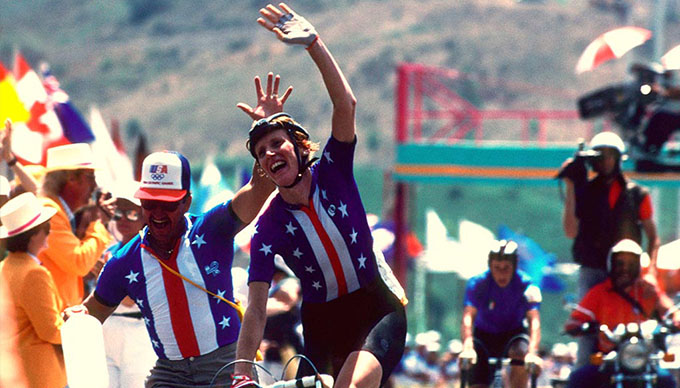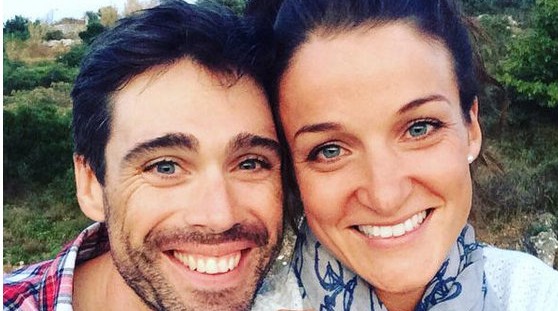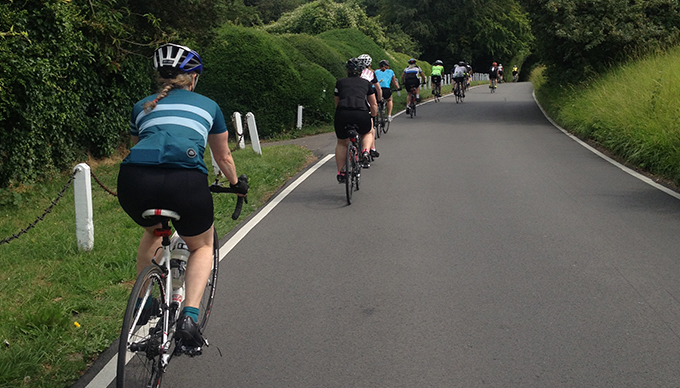For us a bicycle is leisure and pleasure, it’s a healthy form of exercise, it’s a cheaper way of getting to work, it’s our weekend pastime and it’s our lifelong passion.
For others, a bicycle is access to education, improved quality of life, a longer life expectancy, a brighter future and empowerment. It’s a means of transport that means so much more than just getting from A to B.
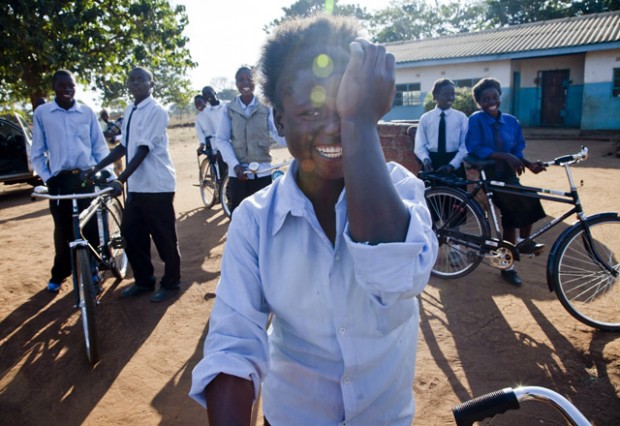
World Bicycle Relief is a charitable organisation that takes this to heart, distributing bikes to areas where getting around is difficult, the distances are great, and the journey can be risky. These bikes become a powerful tool in the fight against poverty, and in the regeneration of disaster-hit areas.
Set up in 2005 in response to the Boxing Day Tsunami, which devastated lives around Indian Ocean, the organisation is the brainchild of F.K. Day, co-founder of SRAM, and Leah Missbach Day, a documentary photographer.
Cycle touring with your baby: everything you need to know
Over 24,000 bicycles were distributed in Sri Lanka with the help of local aid organisations, and the organisation has grown steadily since then. Now, it has 4 assembly plants in Africa, and 161,487 of their special Buffalo bikes are on the ground in 15 countries worldwide.
Bicycles and education
One area where bicycles can make a huge difference not only to an individual, but to a whole community’s future development is education, and if you make a donation to World Bicycle Relief in the UK, this is where your pennies and pounds will go.
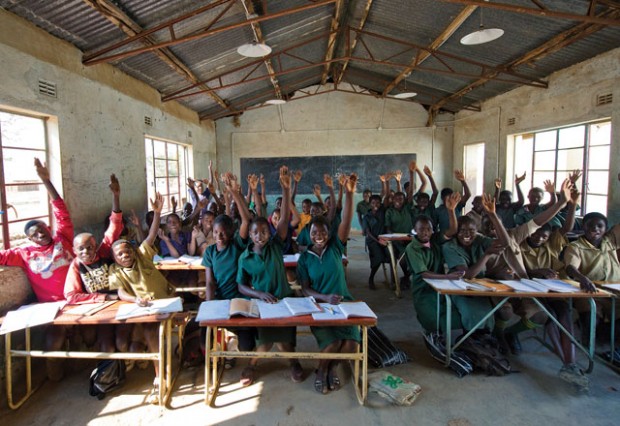
What’s the link between bicycles and education? BEEP, which stands for the Bicycles for Education and Empowerment Programme, is a major element of their focus. Bikes are distributed to students, education workers and teachers in Africa, and over 70% of those bikes go to female students.
How to: get the best road bike for your budget
This is critical, as research has shown a strong correlation between educating girls and reduced poverty and increased quality of life.
As global children’s charity Plan UK state;
An extra year of education increases a girls’ income by 10% to 20%, and is a significant step on the road to breaking the cycle of poverty. Educated girls mean the chance of a better life for themselves and their children, a more prosperous community, a better workforce and a wealthier nation.
In Zambia, where 50,000 bikes are being distributed, girls can face a walk to school of 2 to 3 hours each way. En route, they are at risk of harassment, sexual assault, poor nutrition, and fatigue. Time at school is also time away from the household chores they are responsible for.
A bicycle can change this situation drastically. What’s more, in areas where bicycles have been supplied there’s also been an increase in the number of children under 5 being seen at health clinics; when the bike isn’t being used to get to school, it can be used by the whole family for transportation. Its impacts reach far and wide.
Recipients are chosen by a local community committee, with factors like journey time taken into consideration. Students will sign a contract when they receive a bike, promising regular school attendance.
Buffalo bicycles
These aren’t your average bicycles; sturdy, durable and robust, they are steel-framed steeds that are designed specifically for the environment they’ll be used in.
They’re called Buffalo bikes, and their main features include puncture resistant tyres, a coaster brake, an integral rear rack with a carrying load of 100kg, and heavy gauge steel tubing for the frame. They’re also designed to be compatible with locally available spare parts, and World Bicycle Relief provide training to develop local field mechanics.
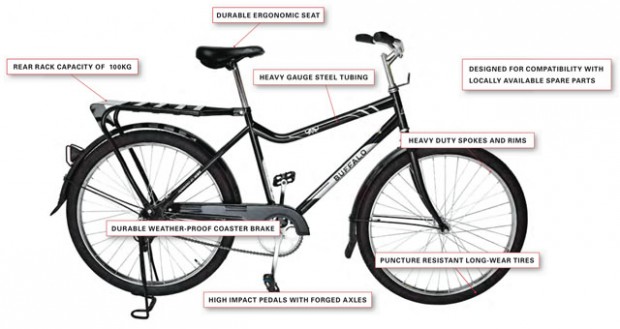
Want to donate?
Putting a bike in the hands of a student costs £95, so any donation you make will make a big difference. Club together with friends and family, get sponsored, organise a charity ride – the sky is the limit!
Make your donation through World Bicycle Relief’s Virgin Money Giving account, and if you are in the UK don’t forget to tick the Gift-Aid box, which will boost your donations value by around a whopping 25%.

